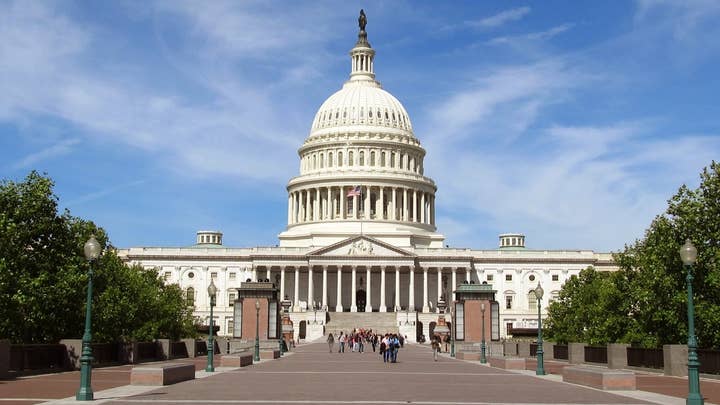US Congress "disappointed" with companies' response to extremism concerns
ESA warns suggestion that games expose players to extremists could "cause false alarm and create a false reality"
Sign up for the GI Daily here to get the biggest news straight to your inbox
The US Congresswoman leading efforts to learn more about how the games industry is dealing with the rise of extremism in online multiplayer games has expressed frustration at the response from leading publishers and platform holders.
Representatives Lori Trahan told Axios that of the 14 companies who responded to her questionnaire – which include Microsoft, Sony, Tencent, Epic Games, EA and Activision – only five detailed what they're doing to assess and tackle extremism in their games.
"I'm disappointed that the majority of companies failed to address some of our most urgent questions, including providing us with their policies around extremism, as well as transparency reporting around these topics," said Trahan in a statement.
Roblox was one notable exception, saying that it has a team dedicated to reviewing links to terrorism or extremism that occur on its platform. The company has been criticised in the past for enabling players to recreate real-world mass shootings in its game.
Congress' request for information on how the industry handles these incidents follows last year's report by the Anti-Defamation League, which showed spikes in white supremacist ideology and identity-based harassment.
20% of adult respondents said they were exposed to the former in online games, up from 8% in 2021. An additional 15% of gamers aged 10 to 17 said they encountered white supremacy online.
Among the titles most likely to expose players to white supremacist extremism were:
- Call of Duty (44% of adults reported incidents)
- Grand Theft Auto Online (35% of players)
- Valorant (34% of players),
- PUBG Mobile (32% of kids aged 10 to 12)
- Dota 2 (29% of kids aged 13 to 17)
Entertainment Software Association spokesperson Aubrey Quinn responded: "The industry takes this issue very seriously and it's frustrating to hear it's not seen that way."
The ESA has issued its own letter to congressional leaders, including Trahan, offering more detail on what the industry is doing with parental controls and moderation.
It also takes issue with the broad use of the term 'extremism.'
"Suggestions that playing video games expose players to 'extremist' behavior cause a false alarm and create a false reality," the ESA said in its letter.
"The reality is that millions of Americans are engaging in fun, positive and valuable play on our platforms. That is because our members place a high priority on creating safe and inclusive environments. And where harmful behavior surfaces, our industry addresses it promptly."
Last year, the US Department of Homeland Security poured almost $700,000 into research around online gaming and extremism.
Sign up for the GI Daily here to get the biggest news straight to your inbox

